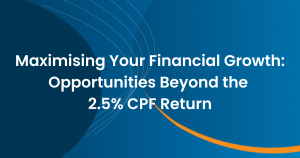Using the right funds to seize the opportunity September 6, 2022

Among the main global issues that, worry investors in stocks, bonds and other instruments these days are the Fed interest rate hikes, inflation, recessions (hard landings and soft landings for the economy), stagflation, energy prices and the conflict in Ukraine and its consequences on the commodities space.
The markets have been very volatile as a consequence of these events.
Economists have expressed concern that the Fed raising interest rates to reduce high inflation could trigger an economic decline.
An economic model maintained by Federal Reserve Bank of New York economists suggests the chance of achieving a “soft landing” for the US economy is just 10%.
So, what is a soft landing? According to the model, a soft landing is defined as four-quarter GDP growth staying positive over the next 10 quarters.
If a soft landing fails to materialise, then we could have a hard landing. A hard landing refers to a marked economic slowdown or downturn following a period of rapid growth. It is defined to include at least one quarter in the next 10 in which four-quarter GDP growth dips below -1%, as occurred during the 1990 recession. The model says that the chances of this happening are about 80%.
Separately, the World Bank has warned that global economies are at risk of stagflation, if not a recession.
“The world economy is again in danger,” David Malpass, President of the World Bank, said in the latest edition of the Global Economic Prospects report. “It is facing high inflation and slow growth at the same time. Even if a global recession is averted, the pain of stagflation could persist for several years – unless major supply increases are set in motion.”
What’s the difference between stagflation and recession?
A recession is generally accepted as at least two consecutive quarters of negative economic growth, which naturally leads to rising unemployment. But inflation usually remains mild, allowing the Federal Reserve to cut its benchmark funds rate to jumpstart the economy.
Stagflation, though, is vague. Growth doesn’t have to be negative. It can just be “stagnant,” or low, but it’s always accompanied by “high” inflation and “high” unemployment.
What are the odds of a recession? Unlike stagflation, most economists see some chance of a recession. However, the odds range from slim to highly likely.
What are the odds of stagflation? So far only a handful of economists – including former Treasury Secretary Lawrence Summers – think stagflation is nearly inevitable.
Where to invest?
Potential investors should consider investing in what people need, regardless the economic landscape. That includes commodities like precious metals, industrial metals, energy products, and other industrial and agricultural goods.
In stocks, the same idea holds but make sure the companies have strong financials and their stock prices are not too expensive relative to earnings and cash flow. In other words, look for value. Dividends are a bonus because you’ll be able to earn income on the side.
Here are some funds that focus on precious metals, industrial metals, energy products and industrial and agricultural goods.
| YTD (%) | 1M (%) | 3M (%) | 6M (%) | 1Y (%) | 3Y Sharpe Ratio | |
| Schroder AS Commodity Fd A Acc SGD Hedged | 26.83 | 7.00 | -6.01 | 5.97 | 31.39 | 0.92 | PIMCO GIS Commodity Real Ret E USD Acc | 28.67 | 6.69 | -4.45 | 13.94 | 35.29 | 0.98 | UOB United Gold & Gen Fd | -15.11 | 3.42 | -19.2 | -20.5 | -13.26 | 0.14 |
Energy issues
The European Union’s embargo on most Russian oil imports could deliver a fresh jolt to the world economy. And a potential agreement on the Iran nuclear issue could also impact the energy markets.
What does the Western ban hope to achieve?
The ban aims reduce Russia’s position in the global energy industry. The idea is that despite its efforts to find new buyers in China, India and elsewhere, Russia will export less oil overall. As a result, Russian producers – who do not have many places to store the oil — will need to shut wells, which they will not be able to easily restart because of the difficulties of drilling and producing oil in inhospitable Arctic fields.
Possible beneficiaries (countries and companies)
Oil producers like Saudi Arabia and Western oil companies like Exxon Mobil, BP, Shell and Chevron stand to do well simply because oil prices are higher.
Here are some fund option(s) which can help you access the energy markets.
| YTD (%) | 1M (%) | 3M (%) | 6M (%) | 1Y (%) | 3Y Sharpe Ratio | BlackRock World Energy Fd A2 (Acc) SGD H | 38.29 | 14.49 | -4.10 | 17.25 | 63.31 | 0.50 |
Is China a way out for investors?
- Chinese tech stocks in Hong Kong are coming back with a vengeance after being abandoned as “uninvestable” a few months ago. Any sell-off may open another window of opportunity.
- Funds run by the world’s biggest money managers including BlackRock, Amundi SA, JPMorgan and Fidelity have profited by picking up tech stocks in Hong Kong during the March storm and riding the rebound from there, according to fund data. Goldman Sachs said the March low likely marked the market bottom, given historical precedents.
- The Hang Seng Tech Index has risen 34 per cent from a multi-year low on March 15, adding back US$397 billion of market value and helping these funds trim their year-to-date losses. Investors should be looking at the brighter side ahead, according to Citigroup.
- The recent landmark audit deal between Beijing and Washington allowing US regulators to vet accounting firms in mainland China and Hong Kong, could also potentially end the long-running dispute that has threatened to boot more than 200 Chinese companies from US stock exchanges.
Here are some options which can help you access the Chinese market.
| YTD (%) | 1M (%) | 3M (%) | 6M (%) | 1Y (%) | 3Y Sharpe Ratio | |
| JPM China A (Acc) SGD | -24.67 | -7.05 | 1.46 | -15.79 | -33.74 | 0.17 | JPM China A Share Opp A (Acc) SGD | -24.29 | -5.04 | 3.34 | -14.77 | -24.95 | 0.39 | BlackRock Systematic China A-Share Opportunities Fd H A2 SGD | -20.47 | -2.79 | 3.82 | -14.36 | -20.01 | 0.34 |
Finally, here is a list of some of the funds that Phillip investors have put their money into in the past few months.
FSSA Dividend Advantage Fd A (Quarterly Dist)
First Sentier Bridge Fd A (Semi-Ann Dist)
Schroder Asian Growth Fd Cl A Dis SGD
Infinity U.S. 500 Stock Index Fund
FSSA Regional China Fund
Allianz GIF Income and Growth AM H2-SGD (LU0943347566)
Aberdeen Standard Pacific Equity Fund
JPM China A (Acc) SGD (LU0456827905)
UOB United Global Healthcare Fd
UOB United SGD Fund CL A (Acc)
Disclaimer
These commentaries are intended for general circulation. It does not have regard to the specific investment objectives, financial situation and particular needs of any person who may receive this document. Accordingly, no warranty whatsoever is given and no liability whatsoever is accepted for any loss arising whether directly or indirectly as a result of any person acting based on this information. Opinions expressed in these commentaries are subject to change without notice. Investments are subject to investment risks including the possible loss of the principal amount invested. The value of the units and the income from them may fall as well as rise. Past performance figures as well as any projection or forecast used in these commentaries are not necessarily indicative of future or likely performance. Phillip Securities Pte Ltd (PSPL), its directors, connected persons or employees may from time to time have an interest in the financial instruments mentioned in these commentaries. Investors may wish to seek advice from a financial adviser before investing. In the event that investors choose not to seek advice from a financial adviser, they should consider whether the investment is suitable for them.
The information contained in these commentaries has been obtained from public sources which PSPL has no reason to believe are unreliable and any analysis, forecasts, projections, expectations and opinions (collectively the “Research”) contained in these commentaries are based on such information and are expressions of belief only. PSPL has not verified this information and no representation or warranty, express or implied, is made that such information or Research is accurate, complete or verified or should be relied upon as such. Any such information or Research contained in these commentaries are subject to change, and PSPL shall not have any responsibility to maintain the information or Research made available or to supply any corrections, updates or releases in connection therewith. In no event will PSPL be liable for any special, indirect, incidental or consequential damages which may be incurred from the use of the information or Research made available, even if it has been advised of the possibility of such damages. The companies and their employees mentioned in these commentaries cannot be held liable for any errors, inaccuracies and/or omissions howsoever caused. Any opinion or advice herein is made on a general basis and is subject to change without notice. The information provided in these commentaries may contain optimistic statements regarding future events or future financial performance of countries, markets or companies. You must make your own financial assessment of the relevance, accuracy and adequacy of the information provided in these commentaries.
Views and any strategies described in these commentaries may not be suitable for all investors. Opinions expressed herein may differ from the opinions expressed by other units of PSPL or its connected persons and associates. Any reference to or discussion of investment products or commodities in these commentaries is purely for illustrative purposes only and must not be construed as a recommendation, an offer or solicitation for the subscription, purchase or sale of the investment products or commodities mentioned.
About the author
Merino Chen
Merino Chen is a Business Development Executive with the Unit Trust Marketing team.

 Focus on Asia in 2024: Where to put your money?
Focus on Asia in 2024: Where to put your money?  Investing in Unit Trusts with POEMS
Investing in Unit Trusts with POEMS  Is There a “Fairest of Them All”?
Is There a “Fairest of Them All”?  Maximising Your Financial Growth: Opportunities Beyond the 2.5% CPF Return
Maximising Your Financial Growth: Opportunities Beyond the 2.5% CPF Return 









